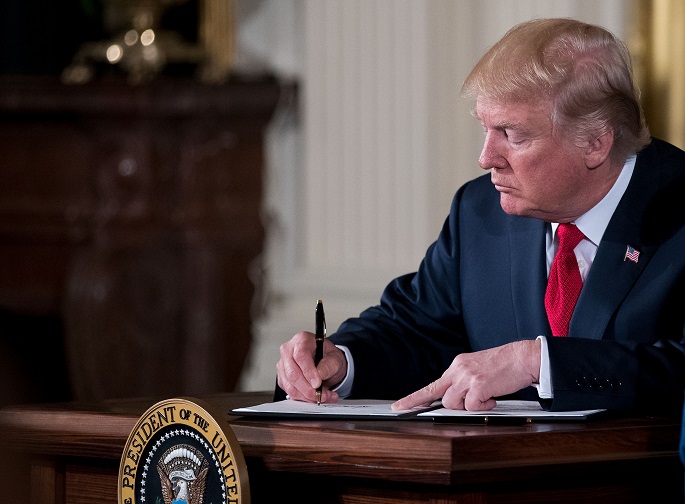Trump declares public health emergency to end opioid scourge in U.S.
Published : 27 Oct 2017, 03:12

U.S. President Donald Trump on Thursday declared the opioid crisis "a national public health emergency" in the United States and vowed to "build a wall" to confront the growing scourge.
"This epidemic is a national health emergency," Trump said, noting the opioid crisis has affected more than 2 million Americans nationwide, and the number continues to rise.
More Americans are dying from drug overdoses today than from gun homicides and vehicle incidents alike, he lamented, "The United States is by far the largest consumers of this drug (opioids)".
"No state has been spared, and no demographic has been untouched." he continued in an address at the White House, accompanied by first lady Melania Trump.
"As Americans, we cannot allow this to continue...We can be the generation that ends the opioid epidemic." the president said.
The key to tackle the problem, Trump said, is for people not to get hooked on drugs in the first place. Part of that comes through education, and teaching people that they are propping up violence through participating in the drug market.
Meanwhile, he promised his administration will spend "lots of money" to find non-addictive painkiller.
The president also said lawsuits lie ahead for "bad actors," which could mean drug companies, amid national fighting to curb the epidemic.
A final report will come in from the opioid commission next week, Trump said, on recommendations for dealing with the crisis which he called "national shame" and "human tragedy".
With Trump's declaration, the U.S. federal government will waive some regulations, give states more flexibility in how they use federal funds and expand the use of telemedicine treatment, according to White House aids who briefed reporters on Thursday morning.
"Addressing it will require all of our effort, and it will require us to confront the crisis in all of its real complexity," said Trump, who has long-promised to address the epidemic that claimed more than 64,000 American lives in 2016 alone.
However, a public health emergency is not the same as the national emergency Trump initially promised to announce in August, local analysts noted.
Unlike a national emergency, a public health emergency declared by the White House does not free up Federal Emergency Management Agency (FEMA) funding. Instead, it has to rely on existing funding to be redirected under the Public Service Act.
Furthermore, the emergency will only last 90 days, though can be repeatedly renewed every 90 days by the White House.
The last time that a national public health emergency of this scope was declared in the United States was in 2009 in response to the H1N1 influenza virus.
Drug overdoses are now the leading cause of injury-related death in the country. Opioid use, which has skyrocketed in the United States since the turn of the century, is to blame for much of the increase.

